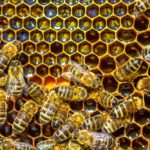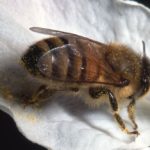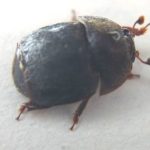In Manitoba and Saskatchewan, air quality advisories for long stretches of the last few months have been bad news for beekeepers. Simon Lalonde equates heavy smoke to a rainy day — without the benefit of rain.


Honeybees hunker down when there’s too much smoke in the air

It’s estimated pollinators, mainly bees, increase the production of numerous species of crops by as much as 75 per cent

Invasive pest known to decapitate honeybees, take over hives


